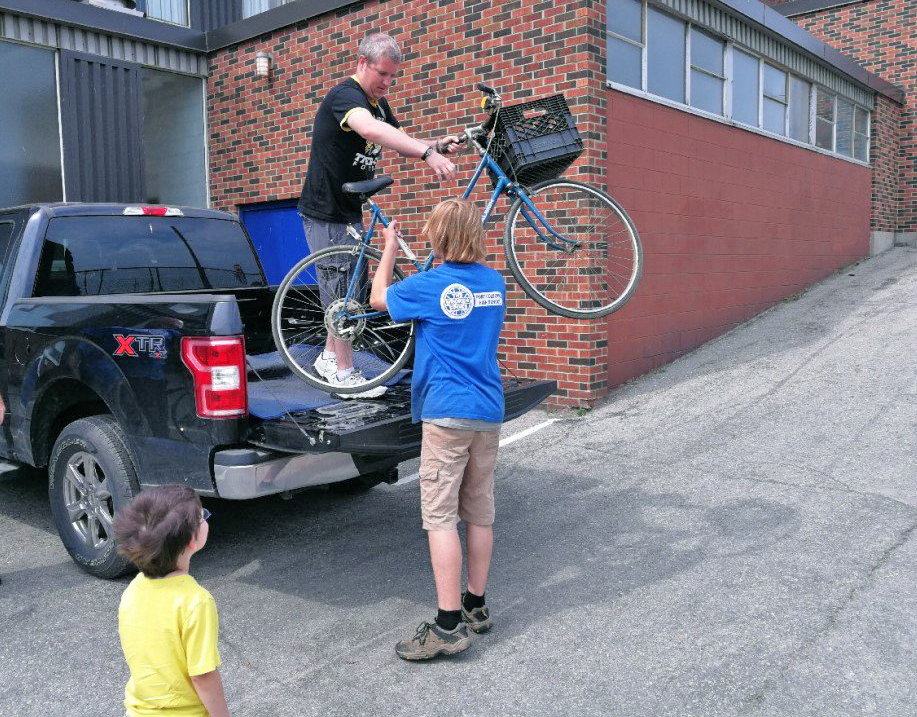
Blog Contributor: Noah Nickel
Where has the time gone? It seems like it was only yesterday I found out that I would be starting my summer co-op work term and now it’s already coming to a close.
My name is Noah, and this summer I had the pleasure of working with the Environmental Sustainability Research Centre here at Brock University, and what an experience it was. I wouldn’t trade this summer and this opportunity for the world, as it not only taught me so much about environmental sustainability, but it provided me a very valuable platform through which I was able to engage with staff at Brock, Environmental Sustainability Professors, and other students and community stakeholders on the topic of sustainability, and really achieve some great things in the process.
For starters, in my role as Communications and Events Assistant, I had the opportunity to manage our social media channels (@BUSustainable & @BrockUESRC on Facebook, Twitter, and Instagram), our newsletter, and our website, as I continued the implementation the ESRC’s long term communications plan. I am proud to say that through the work I did managing the ESRC’s various media outlets, I was able to contribute to their long term communications goals in a meaningful way, increasing our followers and their engagement with our content, ensuring that the topic of Sustainability at Brock and Environmental Sustainability more broadly reach a broader and more thoroughly engaged audience.
I was also one of the many architects of Brock’s Energy Conservation and Demand Management Plan (ECDM), which is essentially a detailed history of what the University has accomplished in terms of conservation in the last 5 years as well as a roadmap of where the University is going to focus its efforts for greenhouse gas (GHG) and energy reductions during the next 5 years. I was able to work with many amazing people on this project, and to collaborate on such a substantial and meaningful task, regarding the entirety of energy conservation and GHG projects at Brock both past and present, was personally fulfilling to me unlike any other project I had ever worked on. I would highly recommend checking out the ECDM to get a glimpse at the numerous projects Brock has already undertaken to conserve energy and reduce GHG’s, as well as some of their future plans.
I have also been involved as a member of the executive planning committee in creating and organizing a Sustainable Development Goals Training Day here at Brock, based on the United Nations Sustainable Development Goals (SDG’s). Open to the general public, this training day will serve to not only educate you on the 17 SDG’s, but it will also provide you the opportunity to personally engage with them and apply this knowledge in a series of workshops that will require you to work collaboratively, problem solve, and critically think about and analyze scenarios, questions, and more. You can RSVP to this event either on Facebook or through ExperienceBU if you are a Brock student, and it will be held on Saturday November 16th from 10:00am – 3:00pm. I encourage everyone to look into the SDG’s and seriously consider attending this event in order to expand your knowledge and mobilize in support of environmental sustainability and sustainable development.
While this barely scratches the surface of the various projects that I worked on with the ESRC this past summer, I believe that it demonstrates the unique nature of the work that has been done, is currently being done, and can be done in the future when we work together towards environmental sustainability on a broad-based, institutional level.
It’s clear that the earth is in a very precarious situation right now. As the climate catastrophe continues to intensify across the globe, it’s clear that our institutions are failing us by not adequately responding to this pressing issue. However, I believe that we can only tackle the climate crisis by engaging with these institutions and changing them from within so that they work for us. That means writing to our politicians, making an environmentally conscious vote this coming election, and getting involved in places like universities that have major platforms that can be used orchestrate and achieve profound societal change, including on issues of environmental sustainability. It’s too late to just worry about our own habits and just worry about ourselves, we have to get together and demand immediate action from within the power structure for the sake of humanity, and the planet.









